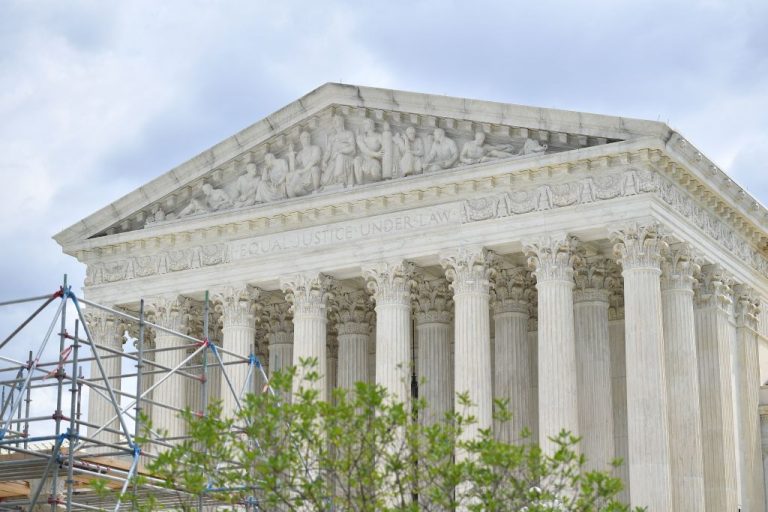The U.S. Supreme Court upheld certain voting restrictions in the State of Arizona, overturning a ruling by the Ninth Circuit Court of Appeals that found certain voter integrity laws were racially prejudicial.
According to the Syllabus in the case Brnovich v Democratic National Committee, the regulations at stake involved a voter being required to vote in their own precinct on election day and absentee ballots only being able to be collected by a postal worker, elections official, or a caregiver or relative. The DNC claimed the rules prejudiced American Indians, Hispanics, and Blacks and were “enacted with discriminatory intent.”
The case was originally dismissed in its entirety by the District Court, but the ruling was reversed by the Ninth Circuit on appeal.
The Syllabus reads, “Voting necessarily requires some effort and compliance with some rules; thus, the concept of a voting system that is ‘equally open’ and that furnishes equal ‘opportunity’ to cast a ballot must tolerate the ‘usual burdens of voting.’”
“Mere inconvenience is insufficient.”
Success
You are now signed up for our newsletter
Success
Check your email to complete sign up
The ruling said the Court of Appeals reversed the decision on the basis that “less restrictive” alternatives to voting would not threaten the integrity of the precinct system used in Arizona. However, the high court disagreed, saying that statute “Does not require a State to show that its chosen policy is absolutely necessary or that a less re- strictive means would not adequately serve the State’s objectives.”
Additionally, it found the limitations on absentee voting met the legal standard, “Arizonans can submit early ballots by going to a mailbox, a post office, an early ballot drop box, or an authorized election official’s office. These options entail the ‘usual burdens of voting,’ and assistance from a statutorily authorized proxy is also available.”
The Supreme Court ruled 6-3 in favor of overturning the Court of Appeals decision along conservative-liberal political lines. Justices Kagan, Breyer, and Sotomayer comprised the dissenters.
In a 40 page dissent penned by Justice Kagan, she argued, “If a single statute represents the best of America, it is the Voting Rights Act. It marries two great ideals: democracy and racial equality. And it dedicates our country to carrying them out. Section 2, the provision at issue here, guarantees that members of every racial group will have equal voting opportunities. Citizens of every race will have the same shot to participate in the political process and to elect representatives of their choice. They will all own our democracy together—no one more and no one less than any other.”
Referencing the racially charged conflicts of 1960s America, she continues, “If a single statute reminds us of the worst of America, it is the Voting Rights Act. Because it was—and remains—so necessary. Because a century after the Civil War was fought, at the time of the Act’s passage, the promise of political equality remained a distant dream for African American citizens. Because States and localities continually “contrived new rules,” mostly neutral on their face but discriminatory in operation, to keep minority voters from the polls.”
“What is tragic here is that the Court has (yet again) rewritten—in order to weaken—a statute that stands as a monument to America’s greatness, and protects against its basest impulses. What is tragic is that the Court has damaged a statute designed to bring about “the end of discrimination in voting.”
President Biden, the Executive Branch, immediately took aim at his peers in the Judicial Branch over the ruling, saying in a statement, “While this broad assault against voting rights is sadly not unprecedented, it is taking on new forms. It is no longer just about a fight over who gets to vote and making it easier for eligible voters to vote. It is about who gets to count the vote and whether your vote counts at all.”
In September of 2020, investigative journalists Project Veritas collected video evidence of a ballot harvesting scheme in Minnesota’s Somalian-American community where organized individuals connected to Democratic Rep. Ilhan Omar systematically harvested absentee ballots from the ethnic community
















